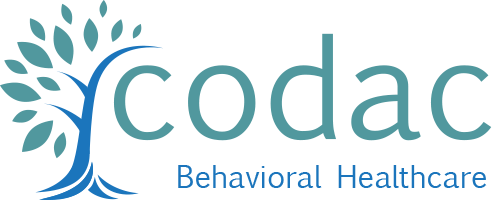CODAC to support expanded opioid treatment program backed by $1.5 million grant

CRANSTON (October 31, 2018) —Rhode Island is poised to take another big leap in curbing the opioid epidemic with the expansion of a treatment program run by the Rhode Island Department of Corrections. Researchers from Brown University have been awarded a three-year, $1.5 million grant to implement and evaluate the benefits of providing medication assisted treatment services for individuals at multiple points during the criminal justice process, and have enlisted the support of CODAC Behavioral Healthcare, the Rhode Island Department of Corrections (RIDOC) and Rhode Island State Police.
The MAT Expansion through Law Enforcement and Multidisciplinary Team Outreach project will help provide access to medication assisted treatment (MAT) at critical moments when individuals are at the highest risk of a relapse or overdose. Additionally, it will fill identified gaps in services that fall outside the scope of the current RIDOC MAT program while also strengthening parts of the existing program.
“This project will build on the success of the RIDOC MAT program by partnering with the HOPE Initiative and CODAC,” said Rosemarie Martin, principle investigator of the project and an assistant professor of behavioral and social sciences at the School of Public Health at Brown University. “Our program is designed to fill gaps where Rhode Islanders with an opioid use disorder can fall through the cracks and would not otherwise receive access to MAT after their release from prison.”
The grant funding, provided by the Substance Abuse and Mental Health Services Administration, will help individuals who are dependent on a substance receive comprehensive care at three different junctures. Those different points include when individuals are awaiting trial at the RIDOC; situations when individuals are eligible for treatment, but are released before receiving medication; and when individuals are diverted to the Rhode Island Adult Drug Court.
Individuals enrolled in this new project will be approached by an outreach team that includes a law enforcement officer, a peer navigator, and a clinician from CODAC, which was selected as the primary service provider and is the largest non-profit, outpatient center for the treatment of substance use disorders in Rhode Island.

Rosemarie Martin, an assistant professor at Brown University School of Public Health and the principle investigator for the new project.
Credit Peter Goldberg
“CODAC’s experience in providing mental health and substance use services throughout the state for over 45 years provides the critical expertise and geographic coverage necessary for impactful change for this population,” Martin said. She added that CODAC’s extensive history with the RIDOC could accelerate the launch of the new project because of their involvement in the existing MAT program.
Some of the important components to the expanded program will be peer support services and providing a clear path towards recovery for the highest risk individuals, according to Linda Hurley, President/CEO of CODAC. “When people with an opioid use disorder are released, it is easy for them to fall into the same destructive cycle,” she said. “This program will connect them with peer counselors who can help make the recovery process more seamless. These patients would also be provided with transportation to our facilities for six days after their release.”
Counselors say the new project could also help reduce overdoses in the state, and further build upon the work by Governor Gina Raimondo’s Overdose Prevention and Intervention Task Force. “Essentially, some of the most vulnerable people will be connected to care as soon as they walk through the door of the ACI,” Hurley said.
As an added benefit, Hurley noted that early intervention for this population can reduce the financial burden of taxpayers amidst the ongoing opioid crisis. “Since this population is at the highest risk of not following up with treatment services after incarceration, they are more likely to experience an overdose, be admitted to an emergency room, or be re-incarcerated. All of these outcomes impact taxpayers.”
Rhode Island is one of the few places in the United States to see a decrease in opioid-related overdoses, and one of the reasons for that decrease has been be attributed to the state’s current, first-in-the-nation MAT program, which was called a national model by Brown faculty member Traci Green earlier this year. The program offers all three FDA-approved medications for the treatment of opioid use disorder, for up to two years, for any inmate who needs it.
While the program has been instrumental in reducing the number of overdose deaths across the state, Martin and Hurley, both agree, more could be done to help individuals who were discharged before receiving referrals to important services.
Martin will work with Rebecca Uth, a researcher at Brown’s Center for Alcohol & Addiction Studies and the project’s program coordinator, to measure outcomes and adapt the program based on evaluation results over the next three years. The expanded program is expected to serve 337 individuals.
About CODAC Behavioral Healthcare
Founded in 1971, CODAC Behavioral Healthcare is Rhode Island’s oldest and largest provider of outpatient services for opioid use disorder, other substance use disorders, and concurrent behavioral health challenges. With eight locations across Rhode Island, CODAC is uniquely positioned to provide services when and where they are needed. For more information about CODAC, visit: www.codacinc.org
###


Recent Comments